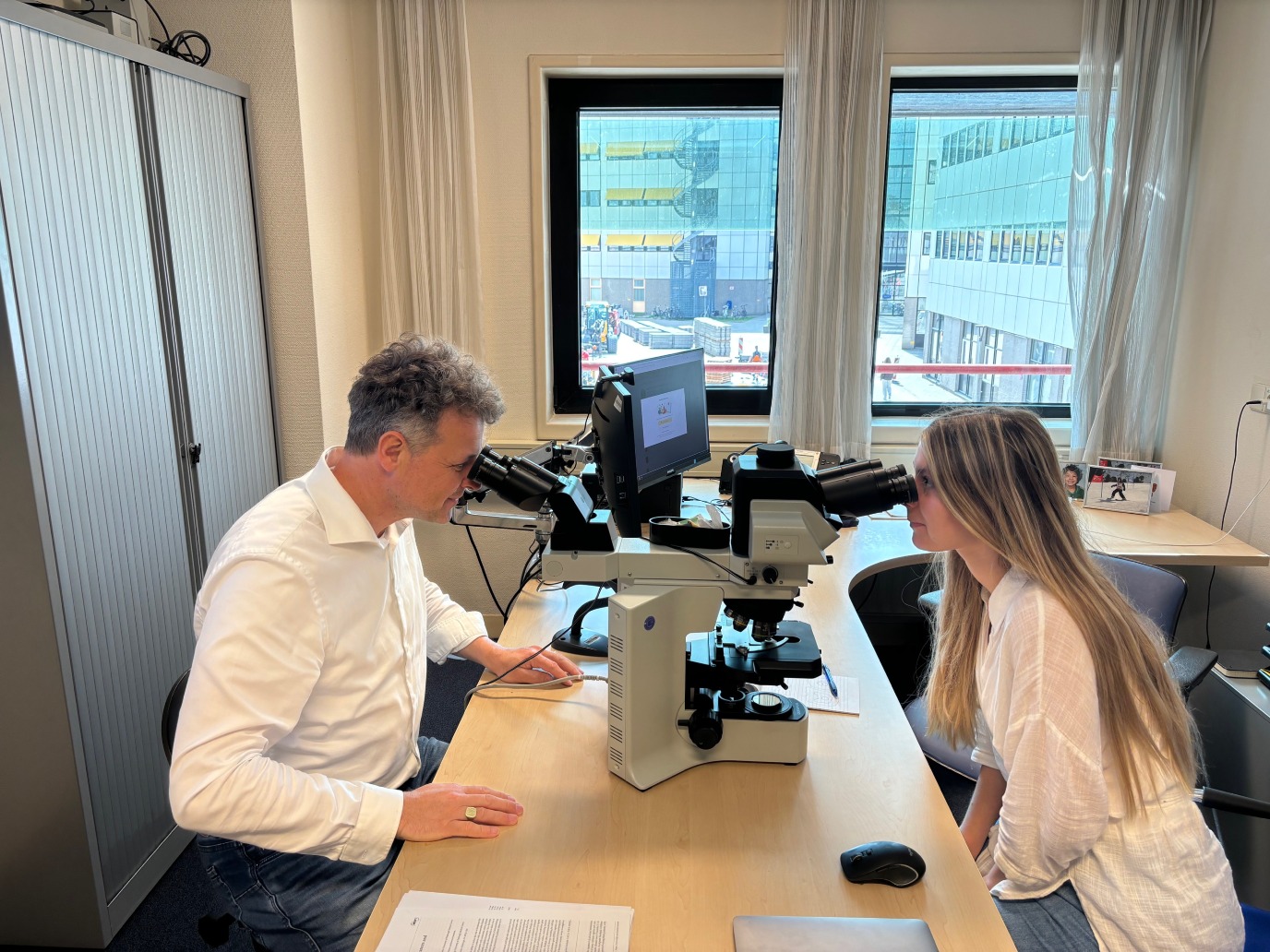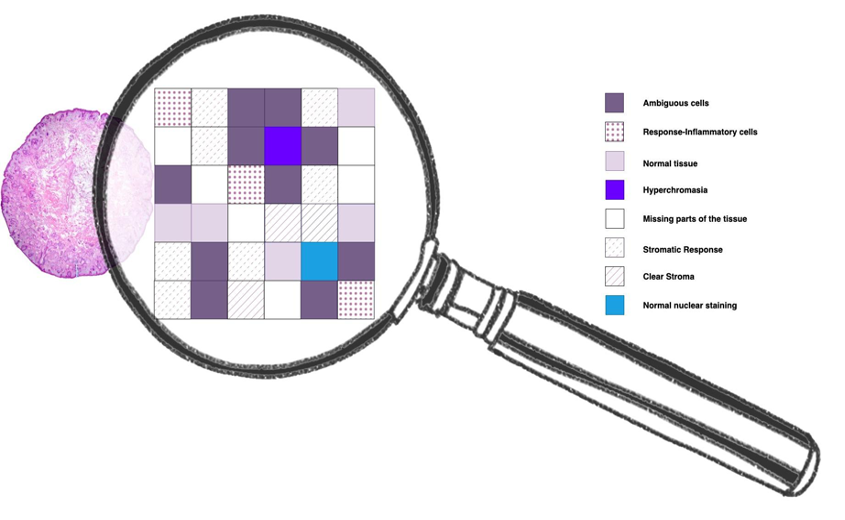Medical AI as a sparring partner
‘AI tools will only be usable for us doctors when they can explain their conclusions,’ a pathologist said to Andra Cristiana Minculescu, Master’s student of Artificial Intelligence. With that comment, Minculescu’s project was born, in which she developed so-called explainable AI for a medical context. Today, her project was awarded the Impact Award of the Faculty of Science and Engineering at the University of Groningen.
FSE Science Newsroom | Charlotte Vlek
Patients with skin cancer have the affected piece of skin removed, which the doctor then studies under a microscope to check if the edges are cancer free. If not, the doctor will go back and remove a bit more skin to be absolutely sure that all cancerous cells have been removed. Often, multiple doctors study the microscopic images, and if needed, a pathologist is called in.

Minculescu was allowed to sit in on this procedure: ‘Not when they were cutting! But I was allowed to observe the discussion between doctors about these microscopic images.’ Minculescu asked the doctors why they did not use AI tools. After all, these are perfectly suitable to diagnose medical images. As it turned out, the discussion between various experts was actually most valuable for these doctors. So, Minculescu got to work to develop an AI tool that could think along with a team of doctors.
Negotiating with an AI player
Each field on the board represents a cell, and the players can negotiate about whether the cell has cancer or not
Minculescu focused on incorporating Theory of Mind (ToM) into the AI system: the ability to reason about what the other might think or know and what intentions they might have. Humans can do this quite well, but it is not such an easy feat for AI. By enabling the AI to infer and adapt to the reasoning and perspectives of individual doctors, Minculescu aimed to create a tool that could seamlessly join in on collaborative discussions.
Minculescu decided to use a virtual game board to represent the skin tissue that the doctors discuss. ‘Each field on the board represents a cell, and the players can negotiate about whether the cell has cancer or not,’ Minculescu explains. For doctors, this could become a way to use the AI tool as a sparring partner, discussing whether a particular cell is cancerous.

Minculescu used the game board to test various versions of AI assistants, each equipped with different elements of Theory of Mind. That way, she could find out which version was best at reaching consensus with a human player. To do this, she incidentally also simulated a human player on the computer: ‘I wanted to give the AI lots of training, and it was simply not feasible to have a human player play so many rounds. Besides, doctors are always too busy anyway.’ So, Minculescu dove into the psychological literature, to best simulate how people reason with uncertainty.
Common ground
‘It was a journey with many steps,’ Minculescu reports. But as it turned out: an AI that works with what is called ‘common ground’, scored the best results. This AI was able to infer information from what another player says and assess what information the other needs. On top of that, the AI also knew that some information is already known to everyone and does not need to be repeated.
‘The doctors responded positively to this project,’ Minculescu says. ‘I was even invited to give a presentation at their Artificial Skintelligence Symposium.’ Together with her thesis supervisors Harmen de Weerd (UG) and Wico Mulder (TNO), she is still working on getting her results published. In the meantime, Minculescu has already graduated. Will she be doing a PhD after this? ‘I’m going to postpone that for now. I did this project because I was interested in the connection between research and application. I want to focus on applications for now.’
AI as sparring partner
Discussing your medical diagnosis with an AI tool: perhaps it is not the first thing that comes to mind when thinking about the current AI developments. But this AI technology, also called Hybrid Intelligence (HI), is an important research topic.
Read here an interview with Rineke Verbrugge, head of the department where Minculescu conducted her research project: A human should decide when it comes to matters of life or death
Also take a look at our fictional story about the importance of an AI assistant that can explain itself: The robot in a doctor's coat
From medical diagnoses to autonomous weapons in the Middle East: artificial intelligence (AI) is making more and more decisions on its own without a human involved. Rineke Verbrugge, Professor of Logic and Cognition at the University of Groningen, believes that has to change.
More news
-
19 December 2025
Mariano Méndez receives Argentine RAÍCES award
-
18 December 2025
Why innovate, and for whom?
-
17 December 2025
Ben Feringa wins Feynman Prize
